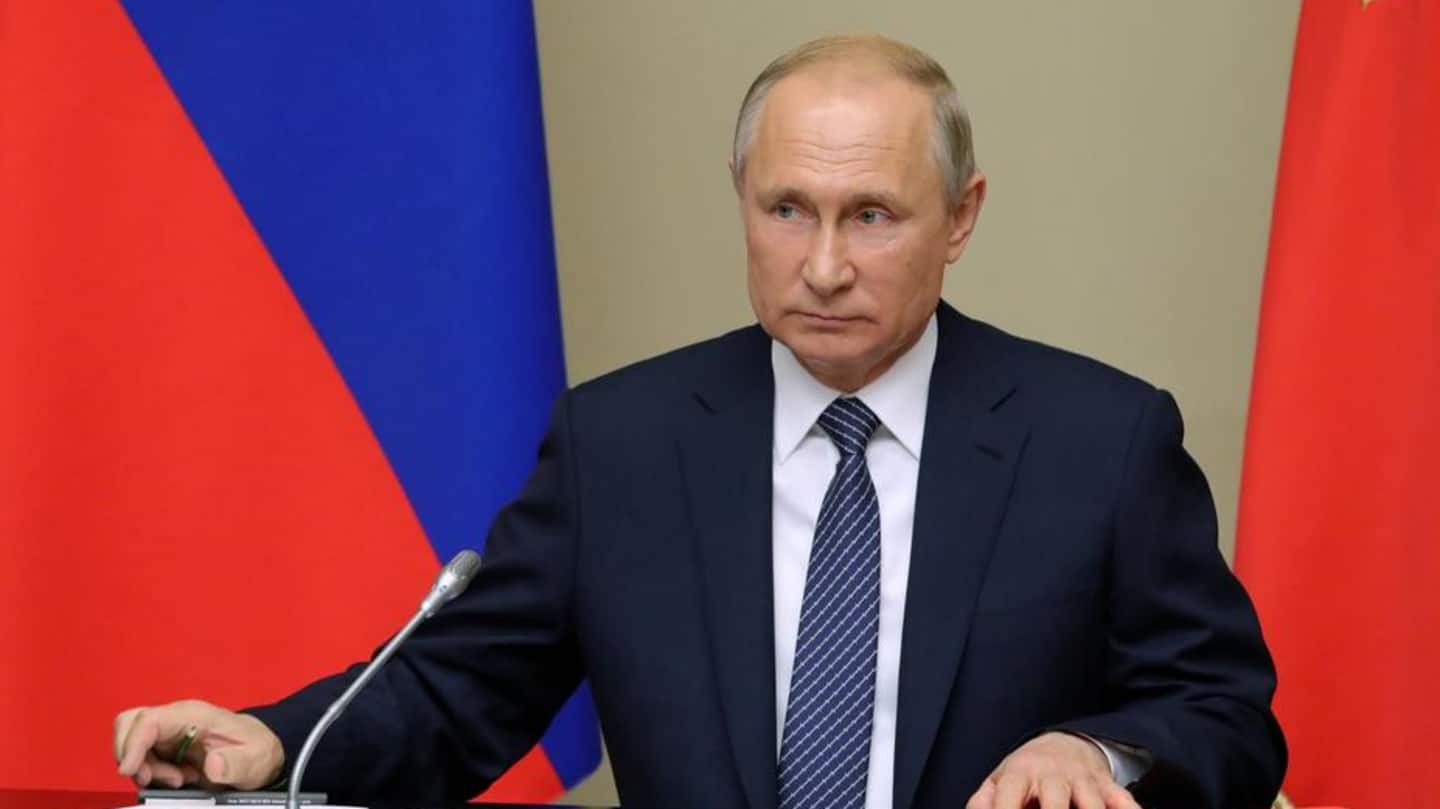
Putin orders Russian authorities to start mass COVID-19 vaccinations
What's the story
Russian President Vladimir Putin on Wednesday ordered authorities to start mass voluntary vaccinations for COVID-19.
The move comes soon after the United Kingdom gave emergency approval to US drugmaker Pfizer and German firm BioNTech's COVID-19 vaccine.
Putin said that within the next few days, Russia will have produced two million doses of the Sputnik V vaccine.
Here are more details.
Details
'You will start mass vaccinations,' Putin told Deputy PM
According to Reuters, Putin told Deputy Prime Minister Tatiana Golikova, "Let's agree on this — you will not report to me next week, but you will start mass vaccination...let's get to work already."
Golikova said large-scale voluntary vaccinations could commence in December.
With Moscow also dealing with supply chains with other countries, the Kremlin had earlier assured that Russians would remain the absolute priority.
Vaccine
What is the Sputnik V vaccine?
Sputnik V has been developed jointly by the Russian Direct Investment Fund and the Gamaleya National Research Center of Epidemiology and Microbiology.
The vaccine, which uses two adenovirus vectors, has been found over 91.4% effective.
India's Dr. Reddy's had entered a partnership with RDIF for 100 million doses of the potential vaccine, which has been shown to induce a strong immune response among participants.
Outbreak
How bad is the outbreak in Russia?
Russia has reported a total of 23,47,401 COVID-19 infections—the fourth-largest number of cases in the world after the United States, India, and Brazil.
However, the outbreak has slowed after peaking on November 27; 25,345 new cases were reported in the country on Wednesday.
In Russia, 41,053 people have died of COVID-19 since the beginning of the pandemic.
Lockdown
Russia ditches broad lockdowns amid second wave
As it faces the second wave of COVID-19, Russia has resisted imposing lockdowns, opting to impose local lockdowns instead.
In St. Petersburg, bars and restaurants have been ordered to remain shut from December 30 until January 3.
Museums, theaters, and concert halls would be closed to the public in the city during Russia's New Year holidays (December 30 to January 10).